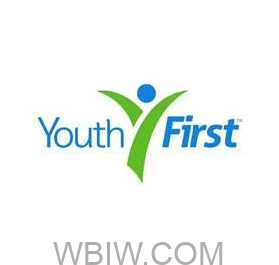
INDIANA – The transition to middle school can be intimidating yet exciting for students and parents. As young adolescents gain independence and face more responsibilities, it is vital that parents stay involved and continue to nurture the child-parent bond.

In preparation for this important milestone, there are several ways to help your student feel prepared and succeed.
Ask your child their thoughts about preparing for middle school. Questions like, “What are you most excited about?” “Is there anything you want to know more about before you start school?” and “Do you have any worries about middle school?” can help you understand how your child feels.
Take time to physically scope out the school’s location. Many area schools host visits before school starts, so your child may have already visited during the last few months of elementary school. Be sure to follow up on that visit and ask your child how they felt about meeting the new staff and being in the school building. If your child did not participate in a visit, ask to tour the building before school starts.

Talk with your child about the many changes middle school will bring. Middle school students have to learn how to navigate different classrooms and teachers throughout the school day. Often, buildings are bigger, and the length of passing periods will limit how much time your child has between classes. Help them learn how to manage their time, such as taking bathroom breaks, getting water, visiting with friends, and still being on time for class.
Time management is also essential when students have more classes in middle school. Teaching your child how to make “to-do” lists, organize their school material, and plan their day so they can manage courses and other afterschool activities can set them up for success.
Encourage your child to take advantage of all that middle school offers. Afterschool activities, clubs, sports, or new areas of interest like band or choir can allow your child to meet new people and have new experiences. Keep them connected to activities outside of school, such as volunteer opportunities, faith-based activities, or commitments important to your family.

Discuss characteristics that your child thinks are important to look for when keeping and making new friends. At this age, adolescents start to really value and rely on their peer relationships. Talking about important values and behaviors to your child will help encourage healthy friendships.
Keep open communication with your child about their growth and development. Their bodies and emotions are changing rapidly, and they need to understand what is expected and how to manage the challenges that come with puberty. Stay updated with appointments with their primary care doctor and dentist for good health. Model and encourage good stress management and coping skills. Getting enough sleep, eating a healthy diet, exercising, and engaging in fun activities are habits they can develop and use their whole life.
Identify professionals in the building that can help if your student is overwhelmed or needs extra support. Identify a teacher, counselor, social worker, school nurse, or other administrator as go-to people if your child needs assistance. Ask for help if more specialized support is needed. School social workers and counselors can provide ideas and referrals if community resources are required for the student and family.
Lastly, stay engaged in your child’s education. Attend school events, sign up and read communications from the school, utilize email to keep in touch with teachers, and ask your child open-ended questions about how their day went to stay informed. If you remain attentive and involved, your middle school student will be set up for success.

Vicki Kirkman, MSW, LCSW, LCAC, is a Youth First Mental Health Professional at Gibson Southern High School in Gibson County. Youth First, Inc., is a nonprofit dedicated to strengthening youth and families. Youth First provides over 100 highly trained mental health professionals (primarily master’s level social workers), prevention programs, parent engagement coordinators, and bilingual support personnel to 126 schools across 14 Indiana counties. Over 52,000 youth and families yearly are served by Youth First’s school-based social work and community programs that promote mental health, prevent substance misuse, and maximize student success. To learn more about Youth First, visit youthfirstinc.org or call 812-421-8336.



